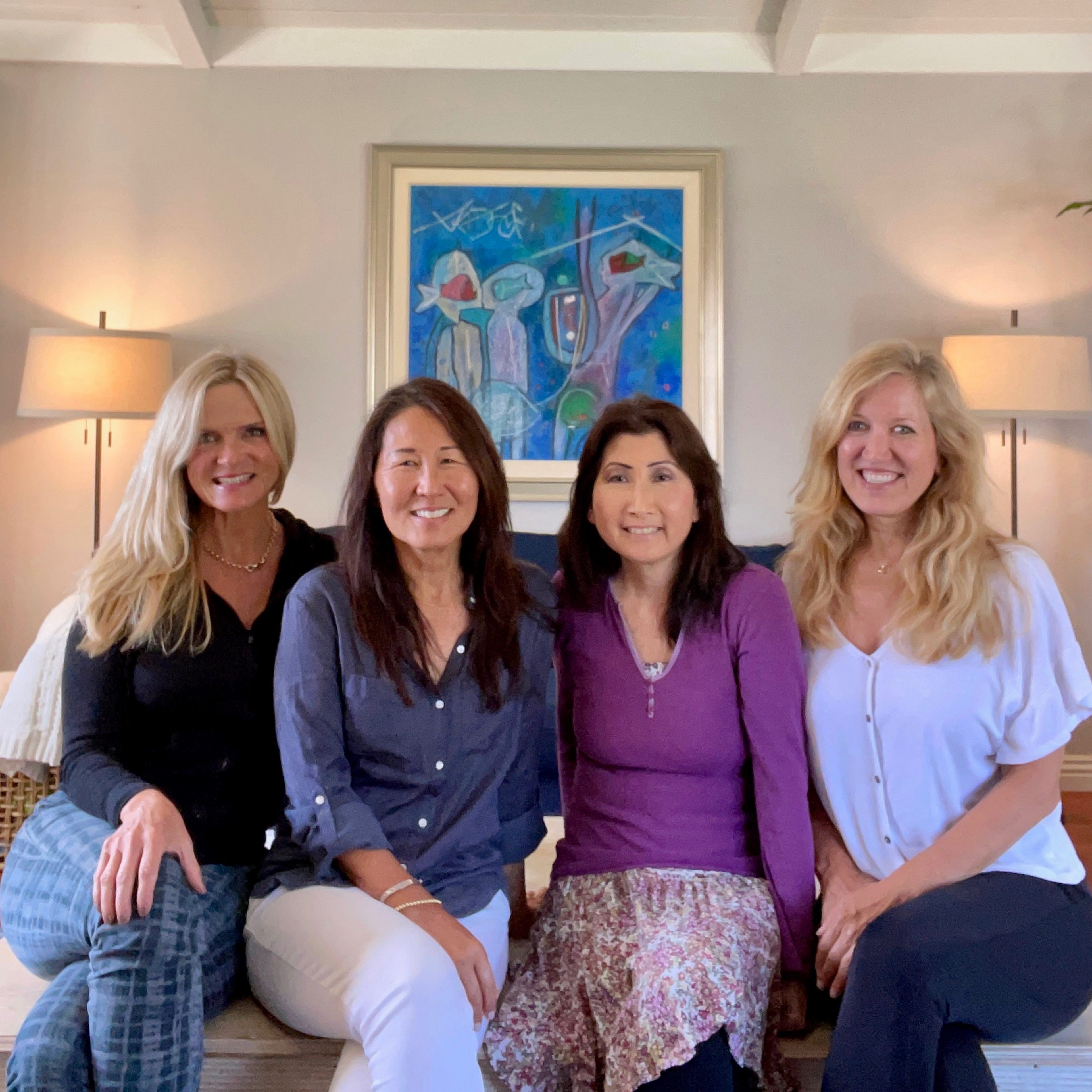
Oct 24, 2021 | Blog and other Dialogue, Moments that Define
Whether you make music, write, draw, or create something else, there is always the inherent risk that your work may not be well received by others. But is it worth the risk to share? The answer is a resounding YES! By not sharing, an opportunity is missed to impact the world in a way that is uniquely yours.
Are you passionate about a project or activity that you keep private, or do you already share it with the outside world? Please tell!
This my journey with three amazing women, and the unexpected gifts we have discovered by writing, sharing, and growing together.
_________________________________________________________________________________________
Unexpected Gifts: Why share your writing?
By Jennifer Townsend, Rosa Kwon Easton, Rieko Mendez and Holly Vanderdonck
“Creative work is not a selfish act or a bid for attention on the part of the actor. It’s a gift to the world and every being in it. Don’t cheat us of your contribution. Give us what you’ve got.”
― Steven Pressfield, The War of Art: Winning the Inner Creative Battle
Although writing starts solitary, it comes to life when we share. It takes courage to share, because when we do, we give a piece of ourselves. Exposing our innermost thoughts and ideas makes us vulnerable. Yet, that’s when the magic happens—sharing our stories creates deeper understanding, connections, and community. It gives voice to our inner feelings and assures us that we’re not alone.
The first step to sharing your writing might be to give your work to a friend or take a writing class. You may be surprised to learn that there are fellow writers all around you. Writers can be found at the local library, workshops, and writing retreats. The four of us, Jennifer, Rosa, Rieko, and Holly, were connected by our children’s elementary school and reconnected at the Palos Verdes Library District’s Writing Month program. When we discovered we were all writing, we formed a writing group, the Write Circle, and were surprised with unexpected gifts.
A kinship emerged when we connected because we all understood the inner voice that drives us to write. The Write Circle has allowed us to bring down our protective walls, dig deeper and focus on what matters in all areas of our lives. It has given us the faith we needed to keep believing in ourselves and the courage to keep writing and sharing.
Our group provides accountability, structure, and specific feedback which improves our writing. Accountability keeps us moving forward, helps us overcome writer’s block, and makes writing more fun. The art of giving and receiving feedback helps us become better writers; if we see it in someone else’s work, we can see it in our own. Working together allows us to see our writing objectively and stay focused on our readers.
What makes our group work:
- Maintaining a manageable size and workload. We have four writers and limit our weekly submissions to ten pages.
- Keeping a weekly meeting time.
- Remaining flexible and open to meet online. Zoom was the unexpected gift of the pandemic keeping us connected wherever we were.
- Being FOR each other, no one dominates.
- Respecting the art of giving and receiving feedback. We comment on what’s working first and then where there’s room for improvement.
- Asking for what we need with questions tailored to our specific concerns.
You can look for a writing group that’s right for you at local writing centers and communities, libraries, writing workshops and conferences, writing associations in your genre, or through people you already know.
Below we detail some of the unexpected gifts our shared journey has brought us individually. We hope you discover the many benefits of forming a writing community and take that brave next step to share your writing.
Jennifer’s Unexpected Gifts – inner healing and power of faith
I set out to write a nonfiction book titled, Disruptive Grace, to help others find the hope, healing, and strength that I have found in a healthy relationship with God. What I didn’t expect to receive were such personal gifts along the way.
Writing has a way of getting to the bottom of things, as we must search for the truth in ourselves. As I revisited my stories in the light of God’s grace, I saw through the lies I had believed in the past and gained a bigger and better perspective. “Going there” with God also enabled me to forgive at a deeper level. As I shared my chapter on forgiving family wounds, my dear friend let go of the bitterness weighing her down by forgiving her mother without the need for restitution.
When I was brave enough to share how faith had worked in my private struggles, even friends who weren’t interested in Christianity got curious. They wanted to know the kind of God I had written about and joined our Bible study, which has made my heart so full. The honesty of our experiences resonates with others and is one of the greatest gifts we can give one another.
Sharing your writing is an intimate encounter, just your words and the reader. Through the written word, you can help people you may never know; the echoes are endless. You can follow Jennifer at www.disruptivegrace.com and Facebook and Instagram @disruptivegrace.
Rosa’s Unexpected Gifts – amplify voices and family connection
I shared a letter I wrote to my daughter on her 18th birthday on my blog and received a surprising response. A reader asked me to write a letter for her daughter’s 18th birthday because she couldn’t speak English well.
Although the reader wasn’t Korean, she reminded me of my mother, whose English is limited, and myself, who still speaks Korean like a seven-year-old. I asked the reader to use an English translation app to tell me what she wanted to say. The translation was garbled, but I drafted something she loved, and she gave it to her daughter for her special birthday.
It feels vulnerable to share my writing, but it’s worth it. It helped connect a mother with her daughter and brought me closer to my own. I understood my mother better too, having to navigate a country without the voice to express herself. I realized my mother and I have always struggled to communicate, and I was reminded how important it is to acknowledge and celebrate this, even if it’s in “Konglish.”
I am writing a novel based on my grandmother’s life growing up in Japan-occupied Korea to amplify the voices of people who have been overlooked and inspire others to look honestly at their own stories. I hope my reader was able to celebrate with her daughter despite the language barrier, just as I was able to connect more with my family. It is the promise of these unexpected gifts, that keeps me writing and sharing. You can follow Rosa at www.rosakwoneaston.com and Facebook and Instagram @rosakwoneaston.
Rieko’s Unexpected Gifts – inner truth and new connections
Writing is a powerful expression of our own voice. I write YA fiction so they’re not true, but there is truth since we writers leave a bit of ourselves in our works. You may have heard the phrase “write what you know.” It’s the emotions, feelings, hopes and fears that we experience that emerge in our pieces and allow readers to relate. Writing has given me the unexpected gift of finding my own truth.
In my YA contemporary fantasy, Chaya, Daughter of Death, a teen bent on finding the cure to cancer learns her dad is death. Unable to accept her dad brought mortality, she uncovers that her mom was a healer. Half daughter of death and half healer, she has to believe in herself before she can wield her full powers to save her world. While writing and sharing this book, I discovered buried inside me the grief of losing my mother at age seventeen and the loss of not sharing with her the joys and heartaches of life.
Writing is also magical in how it brings people together—sharing my writing has brought a new connection with my adult boys. We dive into character arcs and in turn relate to our own experiences of overcoming difficulties. My boys are enthralled to learn this creative side of me and together we get to share our joys and heartaches of life.
Writing surprises us with new truths and greater connections with others. I hope you find your unexpected gifts too. You can follow Rieko at www.riekomendez.com.
Holly’s Unexpected Gifts – emotional and meaningful engagement
When I was ten years old, my father passed away. I wrapped myself up in books to help cope with his death. The characters in these stories inspired me, burning themselves into my heart and soul. Characters like the Velveteen Rabbit, who illuminates the importance of love, and Jo March, an example of fierce femininity. The authors of these stories were invisible role models, creating heroes who profoundly impacted me by filling me with courage and hope for the future.
Recently, I began writing a historical fiction novel about two young musicians, from different faiths and classes, who fall deeply in love in Nazi occupied France. When sharing my book with my family, it sparked unexpected discussions on deep topics such as intolerance, hatred, and the need to persevere in the face of challenges. My decision to transition from an attorney to a full-time author was also the catalyst for unanticipated conversations about my children’s goals and aspirations.
My journey sharing my creative writing has been liberating, allowing me to provide a voice to the values I believe in. By developing characters with significant emotional depth, I hope to provide readers with the opportunity to compare the character’s choices, actions, and consequences with their own lives. My goal is to connect with readers, helping them to discover the best versions of themselves as many authors have done for me. You can follow Holly at www.hollyvanderdonck.com.
Visit the Palos Verdes Library District to see this article and learn how to share your stories with the library – https://pvld.org/pvldwrimo
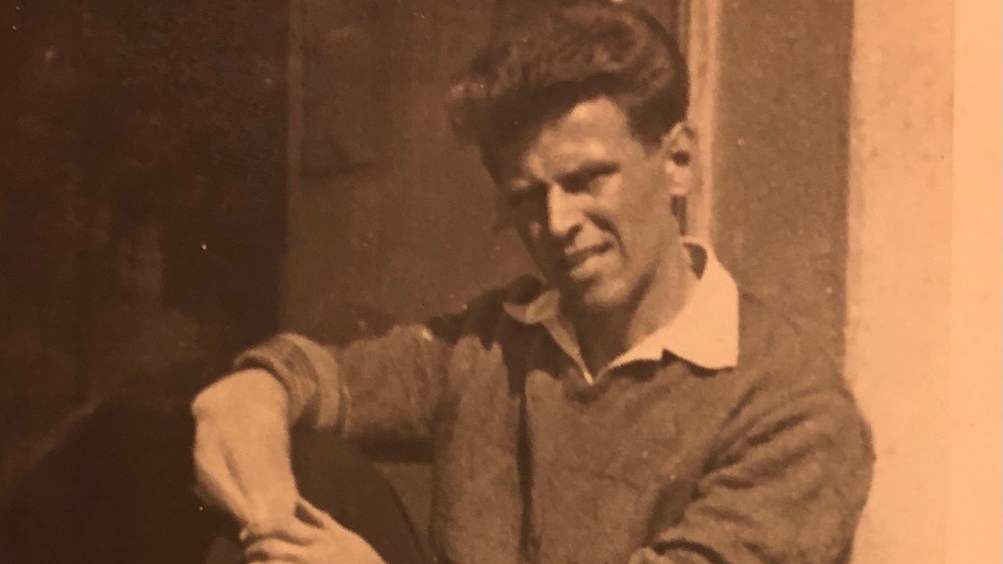
Feb 18, 2021 | Blog and other Dialogue, Moments that Define
Heroes fill us with admiration, touch our hearts, and change how we view the world. But heroes aren’t easily identified on the outside by red capes, masks and shields. They are normal people who are part of our everyday lives; our neighbors, family and friends.
Roger Marcel Heitz lived a wonderfully ordinary existence for most of his life in Palos Verdes Estates with his wife, Eli Myring Heitz and his children, Melinda and Daniel. His family referred to him as “a true rocket scientist” based on his thirty-six-year career as a chemist at Northrop Grumman. Roger rarely discussed his WWII wartime experience, so when his daughter, my friend, Melinda Heitz Jones, shared her father’s story with me, I was excited to learn that our sleepy community was home to a hero like Roger. I was especially intrigued because his experience parallels a book I am writing which is set during World War II.
The call today to protect our democracy is a strong reminder of the great sacrifices that have been made throughout history to protect our freedoms. When Nazi Germany occupied countries across Europe, freedom was a matter of life or death and choices were limited: fight or flight, comply or die. These were the options available to Roger Heitz.
Roger’s early years were unimaginable, marked with the heroism and tragedy that would typically be found only in a film. He was a sixteen year old French citizen living in Strasbourg, the Alsace region of northeastern France bordering Germany and Switzerland, when Germany conquered France in June of 1940. Alsace was annexed to Germany, and although Roger and his family were vehemently opposed to their new dictator, Adolph Hitler, they were subjected to a rigorous Germanization policy requiring them to follow the Führerprinzip, the laws of the Nazi Party.
Roger was one of 130,000 Alsace men who were ordered to join the German armed forces on the Eastern Front. He received his conscription on three occasions. The first time, he was an eighteen year old student in Strasbourg. When he refused, he was forced to work in a factory in Czechoslovakia to support the German military efforts.
In mid-1943, he was drafted a second time and went into hiding in the countryside, fighting with the French Resistance against the Nazis, between Alsace and Czechoslovakia. However, when the Nazis threatened to deport his family to a concentration camp, Roger turned himself in. His family doctor provided the authorities with a false appendicitis diagnosis in a failed attempt to keep him out of the military. The military insisted that Roger undergo surgery and afterward, he intentionally infected his surgical wounds to insure a prolonged hospital stay. He fled the hospital, continuing his activities with the French Resistance, but surrendered when the authorities threatened again to send his family to a concentration camp.
This was his third strike, and he was sent to a German military prison to be tried for desertion, under penalty of death. He concocted an elaborate excuse for his failure to report to duty, which amazingly, the jury believed. Upon his release from prison he was forced to enlist in the German Army. Immediately following his enlistment, he and a friend, Jean-Pierre Dietz, deserted their posts and went into hiding.
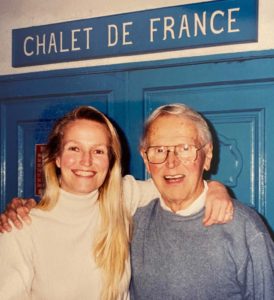 Life in hiding was fraught with dangers, particularly when the Germans came to occupy the first floor of the Chateau d’Ittenwiller in Alsace where Roger and Jean-Pierre hid. After several months they were forced to relocate from the chateau, and took refuge in a church in Barr, France.
Life in hiding was fraught with dangers, particularly when the Germans came to occupy the first floor of the Chateau d’Ittenwiller in Alsace where Roger and Jean-Pierre hid. After several months they were forced to relocate from the chateau, and took refuge in a church in Barr, France.
They continued with their resistance activities while in hiding until the end of 1944 when Hitler used Alsace as the epicenter of his last major offensive against the Allied armies. Roger and Jean-Pierre joined a group of American soldiers to fight against the German military until December of 1944 when Roger reunited with his family in a small village near Saverne. The reunion was bittersweet; Roger’s grandmother and a sister were killed during the allied bombing of Alsace in 1944.
After the war, Roger graduated from the University of Strasbourg and received a Fulbright scholarship to pursue his PhD at the University of Colorado, Boulder. It was there where he met Eli, who resides in Palos Verdes Estates to this day. Sadly, Roger passed away in 2009.
Roger’s journey was truly incredible, especially in light of the fact that most of the 130,000 draftees from Alsace died in battle fighting with the German Army on the Eastern Front. We owe our peace and freedom to people like Roger Heitz who stood firm in the face of tyranny and risked their lives to protect the freedoms and privileges that we cherish so dearly today. The men and women who fought in WWII changed the course of history and gave us our world, and for that, we are eternally grateful.
If you would like to thank a hero who lives among us, or if you have a story about someone who touched your heart and made a difference in this world, please share it here!
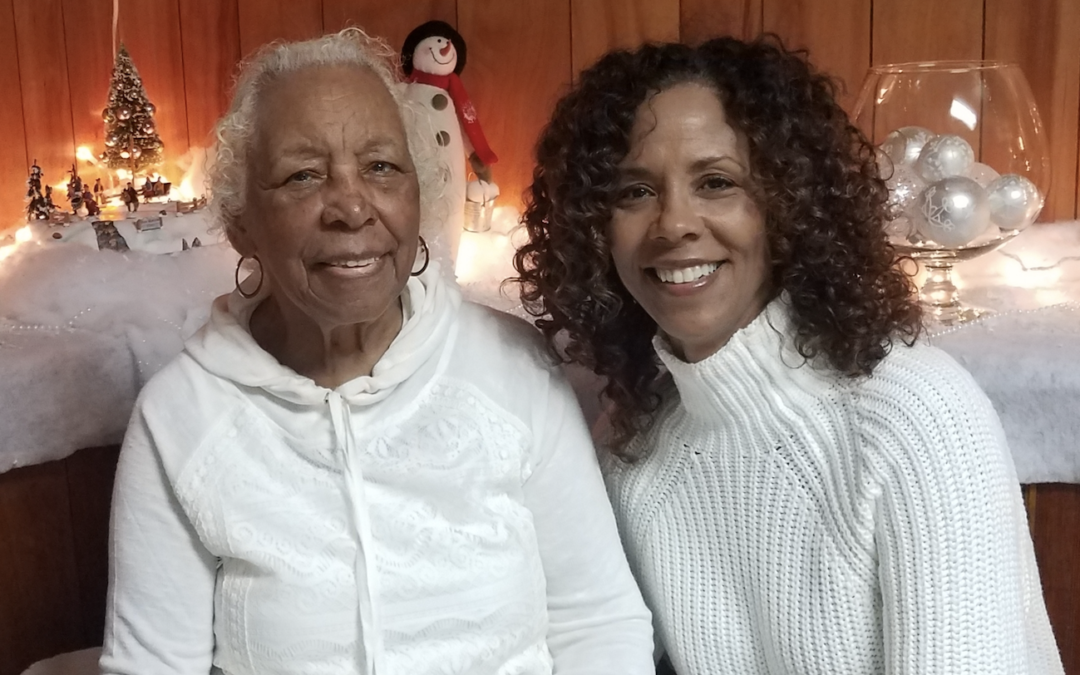
Nov 29, 2020 | Blog and other Dialogue, Moments that Define
After a chance meeting with Sammy Davis Jr. at an airport when I was ten, I became obsessed with the performing arts. I attended musicals at Whiting Auditorium with my mother, tuned into Fred Astaire movies on TV on Sundays, and watched Solid Gold in High School with my friend Bethany. My dancing experience was limited to recreational dancing, but I continued to be fascinated by that world.
Mozel Spriggs, my friend Sondra Williamson’s mother, has always been a big part of that world. She has lived and breathed dance almost from the time she was born in Chattanooga Tennessee on January 1, 1926. When I spoke with Mozel, I was astounded by her memory. At almost 95 years old, she recalls dates, names, and places with incredible accuracy.
Mozel received her bachelor’s degree with a concentration in dance at Virginia’s Hampton Institute, now Hampton University, where she toured with the university’s dance team. At Hampton, she was a charter member of the Gamma Theta Chapter of Alpha Kappa Alpha’s (“AKA”) Sorority, the first African-American Greek-lettered sorority. She received her master’s degree at New York University, and is part of a small percentage of women, 5%, who earned an advanced degree in the 1940s.
She recalled one memorable performance where she danced during the unveiling of a bronze bust of Booker T. Washington at NYU’s Hall of Fame for Great Americans. Additionally, while in NYC, she studied under Martha Graham, a modern dancer and choreographer whose style, the Graham technique, reshaped American dance.
Mozel was married to her husband, Alfred S Spriggs, for 50 years before he passed away in 2000. Alfred grew up in the poverty-stricken 5th ward in Houston, but always aspired for a better life. He received his PhD in Chemistry while Mozel focused on her dance career. She was hired by Spelman College, a historically black women’s liberal arts college in Atlanta to establish its dance program. Her goal was to provide training in many genres of dance and encourage students to embrace their love for the performing arts. To do this, she introduced exceptional African-American concert dancers to Spelman who taught master classes to her students and performed for the greater Atlanta community. A local Atlanta newspaper article even stated that it was Mozel who “ introduced modern dance to Atlanta.”
Mozel brought the renowned Arthur Michell’s Dance Theatre of Harlem, the first African-American classical ballet company, to Spelman for their first-ever performance as a dance company. Other artists she introduced to Spelman include: Geoffrey Holder, principal dancer for the Metropolitan Ballet, Katherine Dunham, known as the “matriarch and queen mother of Black dance,” Carmen de Lavallade, Broadway performer and prima ballerina at the Metropolitan Opera, African dance pioneer Pearl Primus, a close personal friend who referred to Mozel as her “lifetime sister-friend,” and Alvin Ailey of Alvin Ailey American Dance Theatre, whose dance Revelations is one of the most popular and most widely performed modern dances in the world. While at Spelman, Mozel was an educator and mentor for many students who have gone on to build prominent careers, including Pearl Cleage, a celebrated playwright, novelist, and poet, whose works address issues involving racism and sexism.
The Spriggs’ friendship with former Congressman, UN Ambassador, civil rights activist, and Atlanta Mayor, Andy Young, led to Mozel chaperoning professional dancers on a tour of the Ivory Coast to introduce modern dance to Africa. After her return, she helped to sponsor the culturally diverse Ballethnic Ballet Company in Atlanta by serving on its Board of Directors and providing rehearsal space at Spelman. Mozel’s lengthy career has earned her a number of awards, including an NAACP Image Award, and a Pioneer of Atlanta Dance Award.
Grit, gifted, gracious, and glamorous, are just some of the words that Sondra uses to describe her mother Mozel. Sondra knows that she would not be the person or mother she is today without her own mothers unconditional love and support. Sondra has three siblings, and indicated that it was through her mother’s example and encouragement, that they all learned the importance of embracing their creativity.
For Sondra, performing and creativity has become a family affair. Sondra was a model and actress who was a cast member on Days of Our Lives and has appeared in numerous commercials. Her husband, Mykelti Williamson, is an actor, Broadway performer, and director renowned for many roles in film and television: including 24, Forest Gump, Fences, and Chicago P. D. They have two amazing daughters; Nicole, a gifted costume and fashion designer, and Maya, a talented trumpeter and college film student. Sondra’s siblings are also very accomplished. Her sister Linda graduated from Juilliard in dance, bringing Mozel’s dance career full circle when Linda joined Alvin Ailey’s Dance Company.
After retiring from Spelman in 1991, Mozel taught free exercise and dance classes to women aged 60 to 90 years at her church. When Jane Fonda learned of Mozel’s classes, she donated exercise equipment to the women. Eventually, Mozel began teaching free water aerobics at her home which she continued until 4 1/2 years ago.
Currently, Mozel is involved in numerous activities, including her church, and her AKA Sorority, of which she is now the oldest living chapter member. When we spoke, she was sewing children dresses and shirts for AKA’s Global Impact Program which is presently donating clothing to Haitian children. Additionally, she is a 30-year member of a social club whose members travel and play bridge together. She spoke fondly of years past when she frequently entertained and threw parties for family and friends.
Although Mozel has excelled as a dance educator and leader, she believes that her children are her greatest achievement. She made me laugh when she mentioned that it might have been nice if just one of them had inherited Alfred’s aptitude in the sciences. When I asked her if she enjoys today’s dance styles, she indicated that she is “old school” and “prefers professional and modern dance.” She said that when she watches Dancing with the Stars, she doesn’t always agree with the judges. After an extraordinary life and dance career spanning decades, she has earned the right to disagree.
I really enjoyed my conversations with Mozel talking about her interesting and impactful life. She inspired me to pursue my passions and as a result, I intend to register for dance classes. Creativity requires us to try new activities and experiment, even when we feel intimidated. Is there an activity you are interested in but have never had the courage to try?
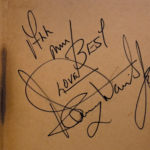
Sammy Davis Jr.’s Signature

Sep 20, 2020 | Blog and other Dialogue, Moments that Define
Dedicated. Gracious. Humble. Tenacious. These are just a few of the attributes of the founder and president of Ethel’s Baking Co.® (Ethel’s), Jill Bommarito, which have contributed to the success of this growing, privately held business. What stands out the most about Jill is actually much simpler, and more powerful; and that is her kindness. Jill enjoys connecting with prospects, customers, and business associates simply because she cares. Kindness encompasses integrity, courage, and human engagement, and it has been these qualities which have truly formed the platform for the growth of her thriving company.
Ethel’s story began in 2009. Unemployment had skyrocketed and consumer spending had plummeted. Jill was a successful real estate agent in a suburb of Detroit, Michigan watching the housing bubble explode, with vacancies spreading across entire blocks. While the economic downturn caused many to flee Detroit, Jill cemented her roots, aspiring to create a business which would positively impact her community’s economic recovery and future.
In December 2010, Jill hosted a Christmas dinner for her extended family, some of whom have food allergies and food sensitivities. Her aunt has celiac disease, an autoimmune disease which is triggered by the consumption of gluten, a protein found in wheat, rye, and barley. Jill decided to prepare a gluten-free meal that everyone could enjoy together. Past experience told her to be clandestine, so she wouldn’t be bombarded with complaints that gluten-free food was “bland and tasteless” Dinner was a success, with the crowd favorite being the pecan bars, today known as the Pecan Dandy Bars®. As the family gushed over the bars, it brought back memories of Jill’s grandmother, Ethel, an excellent cook who taught Jill to bake at young age. Later, as Jill was deciding her next steps in Detroit’s uncertain economic climate, the memory of this dinner led to the idea behind Ethel’s. She decided to launch a company that created great tasting, old fashioned, gluten-free baked goods while embodying her grandmothers high standards, ethical principles, and superior baking expertise.
In early 2011, Jill poured all of her time and resources into Ethel’s. She and her husband, Vince sold their home and invested their life savings, betting everything they had on Ethel’s success. Jill handled all aspects of the business herself, including the baking, marketing, deliveries, and finances. From the beginning, Jill sourced ingredients like eggs and butter locally to insure that Ethel’s delicious baked goods were made the old fashioned way with premium, tried-and-true ingredients.
Initially, Jill baked Pecan Dandy Bars® and Blondie Bars™ for a community celiac food fair where the bars were sold alongside local and national food companies and grocery chains. Grocers observed the high demand for the bars at the event and placed orders for their stores. The increase in orders warranted the immediate relocation of Ethel’s to a commercial kitchen located in a local church. Jill’s big break occurred when Whole Foods Market discovered Ethel’s at the weekly farmer’s market. At this point, Jill decided to expand Ethel’s physical footprint, and moved the company to a dedicated manufacturing facility. Shortly thereafter, Ethel’s lined the shelves of not only Whole Foods, but also a number of other national retailers. Market expansion created demand for new delectable deserts and Ethel’s answered with a product line which includes Ethel’s Cinnamon Crumble, Raspberry, Brownie and Turtle Dandy Bars™. All of these mouthwatering deserts can now be found at retailers throughout the United States and Canada or can be ordered online at https://ethels.com.
As business has grown, Jill has embraced product demand without changing her core strategy or deviating from her vision to make Ethel’s a household name. She plans to bring Ethel’s to every corner of the country by creating a sustainable path to profitability; keeping operations lean and efficient while continuing to build Ethel’s brand value with high quality baked goods. Jill discovered during her journey in the food world that very few females are found at the decision making levels. This realization inspired her to pay it forward by mentoring other women owners of startup companies in the food industry.
Throughout the coronavirus pandemic, heartfelt announcements about failing small businesses have swept across social media around the country. Thankfully, Ethel’s is not one of these businesses and instead, is thriving. On November 1, 2020, Ethel’s will take its biggest step away from its humble beginnings and relocate its booming business into a new, manufacturing facility that is over 8 times its current size with just under 20 employees. This is a huge leap that Jill likens to “going from a 20 foot speed boat to a 60 foot yacht.”
Jill is clear that Ethel’s would not be have achieved the success it has today without her amazing family; her husband Vince, a silent partner who handles numerous projects and decisions behind the scenes, her daughter Lily, a key Ethel’s employee, and her son Joseph, a constant a voice of reason and emotional support. The world may have changed abruptly due to Coronavirus, but some things in life never change. I have observed first hand how Jill continues to live life with enthusiasm, kindness, and humility; building genuine relationships and caring about the well-being of others each step of the way. Many years ago, Jill brought baked goods to school to celebrate birthdays or just to brighten someone’s day. Decades later, she mailed an Ethel’s care package to my daughter at Tulane University in the midst of the Covid crisis and Hurricane Laura. Jill is a shining example that great leadership begins with simple and intentional kindness. We have the privilege to observe Jill Bommarito as she uses kindness to effectively guide Ethel’s through its new challenges and take the baking world by storm!
As an update to my September 20, 2020 blog, Ethel’s Baking Co. shoots for the BARS, Ethel’s was recently featured in Rachel Ray Magazine as one of 10 unique Valentines Day Treats (Beyond a Box of Chocolates).
https://www.rachaelraymag.com/real-life/unique-valentines
Another exciting bit of news is that we can look for Ethel’s baked goods on QVC beginning in March!
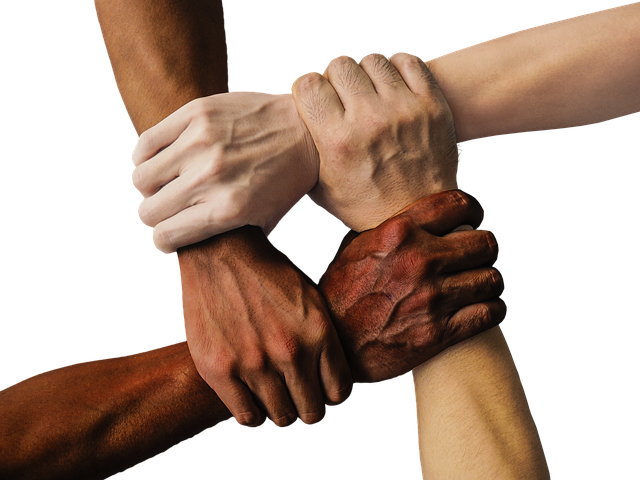
Jun 23, 2020 | Blog and other Dialogue, Moments that Define
Over the past few weeks, at least 1500 BLACK LIVES MATTER protests have swept across America. These were spurred by the outrage over the death of George Floyd who died as a Minneapolis police officer pressed a knee to his neck for nearly nine minutes while he lay handcuffed, face down on the ground. George Floyd is one of approximately 1,000 Americans killed annually by police, a disproportionate number of people whom, like him, are Black. The continued violence and brutality against Black Americans forces us to look in the rear view mirror and examine a key element of our constitutional heritage, the 14th amendment. It is clearly time to remember and reclaim this original promise, acknowledge the pain and anger felt by Black Americans, and form a unified front in the fight for racial equality.
The Equal Protection Clause of the 14th Amendment provides that a state may not… “deny to any person within
its jurisdiction the equal protection of the laws.”
Having Empathy is to acknowledge someone else’s pain and anger while feeling for them as human beings.
Unity is the state of being united or joined as a whole.
My first real exposure to Constitutional Law was a class taught by Supreme Court Justice Antonin Scalia at Pepperdine Law School 30 years ago. I knew this was a once in a lifetime opportunity. A chance to learn from a final arbiter of the law – a guardian and interpreter of our Constitution. However, I quickly discovered that I did not see eye to eye with his vision of the equality protections provided under the Constitution.
Justice Scalia interpreted the 14th Amendment of the Constitution using the concept of “originalism” – the idea that the document could only be interpreted using the literal text and its meaning when penned. Since the 14th Amendment was drafted after the Civil War to create equality for African/Black Americans, Justice Scalia argued it wasn’t meant to provide broader protection to individuals based on gender-based or sexual orientation discrimination matters. Luckily, the other Supreme Court Justices didn’t agree. Most of the other Justices have utilized an empathetic version of jurisprudence in their decision-making process to create laws which reflect the realities of peoples’ lives in our evolving society. This ensures that 19th century words and ideals don’t dictate our 21st century norms. The 14th Amendment has proven vital in the creation of laws to assure the protection of the rights and liberties of all Americans.
Fast forward to 2020 and recent events which demand a careful examination of our nation’s history with its promises to eliminate oppression and provide equal opportunities to historically subjugated minorities. Discussions of BLACK LIVES MATTER currently saturate social media, sometimes interspersed with statements that “all lives matter.” Of course, all lives matter. But it is important to put this statement into context and realize that not all lives are facing persecution.
For years, I represented special needs children against school districts and State Regional Centers who denied these children their constitutional rights to early intervention services and an appropriate education. While fighting to obtain services such as speech and occupational therapy, applied behavior analysis, and other educational requirements for these disabled children, I would not have welcomed the comment that “all children have a right to an appropriate education.” While the statement is true, it shows a lack of empathy and disregard of the violation of these victims’ human rights. Similarly, not all Americans are unjustly impacted by the systemic racism and police brutality experienced by Black Americans.
In March of 2020, amid concerns to contain the coronavirus, the government instituted public health regulations, stay at home orders, and created essential and non-essential employment categories. As a result, we modified our daily routines; sheltering at home with immediate family, working out of the house, and checking in with loved ones and friends only by telephone. Did this crisis bring the nation together and create a sense of a shared national fate? No, it didn’t. As people raided the toilet paper isles, and conflict rose over invasion of personal liberty claims stemming from the required use of face masks, the pandemic served less to unite us than to emphasize the issues that divide us.
The BLACK LIVES MATTER movement has accomplished what neither the establishment of the 14th amendment nor a pandemic has been previously able to do – it caused people to discover common ground while serving as a catalyst to unify us. The Movement has resulted in a nationwide outrage against social injustice and a desire to drive change. The tragic death of George Floyd provided the breaking point where many Americans finally understood and acknowledged the marginalization and oppression that Black Americans have felt for years. This is evident by today’s demonstrations which are markedly interracial, with diverse groups of people protesting together, creating solidarity and a springboard for sweeping reforms for equality. Only by working together can we can spark a global movement to effect change; whether it be by debating the restructuring of the police forces, supporting the universal wearing of body cameras by police, discussing the representation of Black Americans on the boards of companies, or the long overdue investment in education and economic development in poor and minority neighborhoods.
By exhibiting empathy, elevating each other’s voices, listening to new perspectives, and marching together, rather than against each other, we will initiate the positive change required to find real and permanent solutions to systemic racism. It is time to remember and reclaim the 14th Amendment’s promise of equal protection for all under the law to ensure that this amendment serves as the path to freedom and establishes full equality for every American citizen.
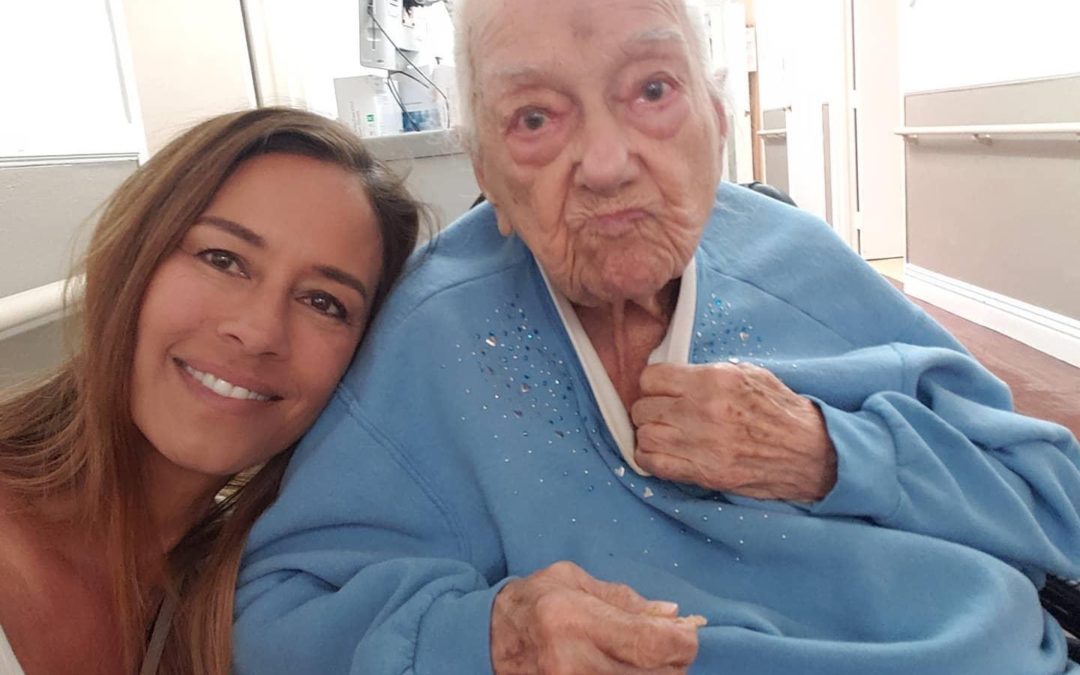
Jun 10, 2020 | Blog and other Dialogue, Moments that Define
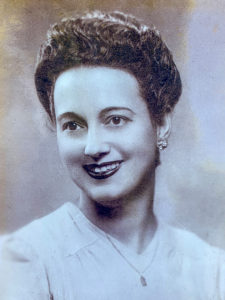
Estela Fernandez at 30 years old in Spain. Fernandez turned 108 years old in Huntington Beach, CA, on Wednesday, April 22, 2020. (Photo by Jeff Gritchen, Orange County Register/SCNG)
Resilient…. is how my friend, Michelle Croasdale would describe her Abuela, her Cuban American grandmother, Estela Orue Fernandez. Estela turned 108 years old on April 22, 2020, while quarantined in her nursing home in Huntington Beach, California. Not only did Estela live through the Spanish flu pandemic in 1918, but she is possibly the oldest person to have recovered from the coronavirus in the state of California. She accomplished this while living her life medication-free.
So what’s the secret to her longevity? Lack of stress? Her genetic makeup? Healthy living? Whatever the reason, Michelle is incredibly thankful to still have her Abuela with her today.
Estela Orue was born in 1912 in Havana, Cuba. At 20 years old, she married Alvaro Fernandez, a Spaniard, and moved to Spain shortly after their wedding. The Spanish admired Estela’s beauty – the striking woman with golden skin whom they called “La Bella Cubana.” With the advent of the Spanish Civil War in 1936, Estela and Alvaro sought refuge in a bomb shelter for 18 months and this was where their first son, Alvaro Jr., was born. Despite having lived in Spain for 15 years, Estela yearned to return to Cuba as she never fully integrated into the Spanish culture. After the birth of their next two children, José and Estela Maria (“Maria” or “Michelle’s mother”), she convinced Alvaro to return to Cuba.
At first, life in Cuba was a dream come true. Alvaro was a successful retail shoe store owner which allowed them to live an upper middle class existence. Alvaro spoiled Estela with the finer things in life and she was extremely happy as a full-time homemaker. In her free time, she enjoyed, gardening, going to the beach, dancing, reading historical fiction novels, and most importantly, spending time with the family.
However, 1953 brought the Cuban Revolution and Cuba shifted to a socialist economy under Fidel Castro’s rule. As a result, the family’s businesses, money, and belongings were ripped away from them. Their son, José, joined the CIA’s secret guerrilla operation established to overthrow Castro’s regime. When the Bay of Pigs invasion failed, José was captured by Castro’s forces, imprisoned, and tortured in a concentration camp. Estela was devastated and promised God that she would not cut her hair until José was freed.
In 1966, Maria and Alvaro Jr. sought asylum from the US and they arrived as political refugees. Their parents remained in Cuba to fight for José’s release from the Cuban concentration camp. Because José was born in Spain, the Spanish government was able to obtain his release in 1967, two long years after his imprisonment. Spain’s intervention was crucial, because the last Cuban prisoner from the Bay of Pigs invasion was not freed by Castro until 1986. Although God had granted Estela’s prayers to bring José home, she still never cut her long, beautiful hair again.
Unlike the children that arrived in the US from Cuba during the Peter Pan movement who were often separated and placed in foster homes, Maria and Alvaro Jr. stayed together and journeyed to Los Angeles where they started a new life. After being freed, Jose, his wife, and children resided in Spain until 1968 when Estela, Alvaro, and Jose’s family were finally able to join them in Los Angeles.
As with her experience in Spain, Estela had a difficult time adapting to the American lifestyle. Sadly, Alvaro Sr. passed away from a heart attack six years after their move to the US. Estela firmly believed that she would follow soon after. She proved herself wrong and lived with Alvaro Jr’s family for the next 40 years. She became the family Matriarch, focusing on caring for all of her grandchildren and great grandchildren.
Estela has inspired Michelle with her immense will to live and the strength and courage she displayed to ensure her family was safe and intact. Michelle believes that her Abuela’s faith in God has contributed to her ability to remain positive despite the obstacles that she has faced in her life.
Estela has had dementia for the last 10 years and now lives only with her vivid memories of life in Cuba. She has lived an extraordinary life and has gifted this world with beautiful children, grandchildren and great grandchildren. In early May, Estela tested positive for COVID19. She was placed in quarantine and five days later displayed mild symptoms, including a fever, cough, and lethargy. The family was devastated to hear of her diagnosis and were concerned that they would not be able to say their goodbyes in person. Surprising everyone, Estela recovered after only fourteen days, confirming that it will take much more than the coronavirus to kill her spirit! She is now back to her normal routine, chatting with her friends and wheeling herself down the nursing home halls. In these difficult times when the family is prevented from seeing their Abuela, they think of her often, and always when the aroma of Cuban espresso fills their homes.
Estela has passed on her resilience in her grand daughter Michelle who is a fighter and a breast cancer survivor – she has all the ingredients to one day be a Centenarian herself! I am blessed to have Michelle as a friend, just as she is blessed to have her amazing and resilient 108 year old Abuela, Estela.


 Life in hiding was fraught with dangers, particularly when the Germans came to occupy the first floor of the Chateau d’Ittenwiller in Alsace where Roger and Jean-Pierre hid. After several months they were forced to relocate from the chateau, and took refuge in a church in Barr, France.
Life in hiding was fraught with dangers, particularly when the Germans came to occupy the first floor of the Chateau d’Ittenwiller in Alsace where Roger and Jean-Pierre hid. After several months they were forced to relocate from the chateau, and took refuge in a church in Barr, France.





Recent Comments